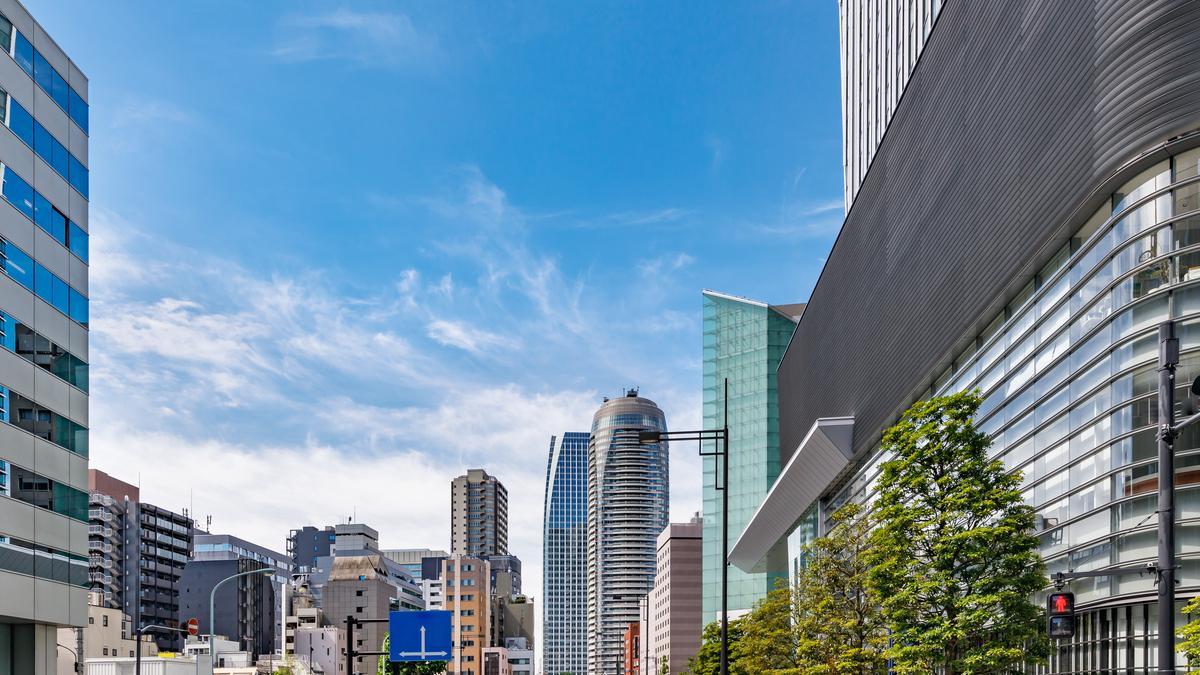
A squeaky clean road in Tokyo.
| Photo Credit: Getty Images/iStockphoto
During my visit to Japan on a family holiday, I was astounded by two features. The first was the pristine cleanliness across the country. As we travelled through big cities and rural areas, public spaces such as parks, markets and train stations and along the seashores, river fronts, ponds and even roadside canals, nowhere did we find any litter; not even a bottle, can, or piece of paper. Surprisingly, when we wanted to dispose of some coffee cups, we just could not locate a trash can. We had no option other than to shove the paper cups in our backpacks.
How does the whole of Japan stay squeaky clean? As we travelled further, we realised that cleanliness has been achieved through a strong civic sense in every individual and social norms ingrained as part of the cultural identity. No one eats or drinks while walking on the road or using public transport. Shops that sell snacks request their customers to take the food away and not eat on their premises. In only very few places did we find trash cans that were labelled: plastics, PET bottles, bottles and cans, and combustible garbage. Such segregation is practised in houses, shops and everywhere. Trash neatly packed in white see-through plastic bags is kept on the roadsides and collected by the municipal staff. In most countries, waste disposal is done through land filling, but in Japan with a limited land area, combustible garbage is put in incinerators, with special measures to reduce the release of toxins in the air.
“Reduce, reuse, and recycle”, the common slogan for minimising plastic waste is well known, though not widely practised. I was fascinated to learn about furoshiki, a traditional Japanese method of cloth-folding to gift-wrap and make bags. It eliminates the need for paper, plastic, tape, and ribbons.
The second aspect that fascinated me was the toilets. The Japanese have combined the best practices of the East and West. It was really an awe-inspiring moment to find, on entering a toilet, a clean and dry floor, the lights getting switched on and the lid opening, automatically. The warm seat and gurgling sound as from a pool lent a feeling of calm. Toilets everywhere in Japan were clean, functioning and adequately stocked. Before the 2020 Olympics, renowned architects were commissioned to build unique public toilets in Tokyo. One such was the transparent glass toilet near the Yoyogi Park. On locking the door from inside, the glass would turn opaque! The Olympics were postponed due to pandemic and later held without spectators. But the Tokyo Toilet Project was shown to the world through a movie, Perfect Days. The protagonist who played the role of a toilet cleaner won the Cannes award for the Best Actor.
A penchant for perfection in everything, considerate behaviour, and no PDA (Public Display of Affection) practised by the Japanese were quite amazing. In the 1990s, I was exposed to Total Quality Management that had helped the Japanese to improve their production after the Second World War. TQM started in a steel plant in Jamshedpur, and was implemented in the health sector and town division also. We memorised the 5Ss: sort, set in order, shine, standardise, and sustain, translated from the Japanese words Seiri, Seiton, Seiso, Seiketsu, and Shitsuke. But seeing the larger picture of an entire country kept clean through discipline, with social norms as the driving force was remarkable, though an impossible aspiration for elsewhere.
Cleanliness in Japan is rooted in culture. Japan’s oldest religion, Shinto is based on worship of nature and the relationship between humans, nature, and the gods. There is no supreme deity in Shinto and no single founder. Shinto believes in religious pluralism, polytheism, and maintaining harmony with nature. Most Japanese are Shintoist, Buddhist or both. As we visited some Shinto shrines and walked through the orange-colored torii gates, my husband wondered, half-whispering, “We don’t know who is the God of the Japanese. Nonetheless, the country is doing great. Let’s pray and act towards cleanliness and prosperity for us too.”
Truly, cleanliness is next to godliness.
Published – May 18, 2025 04:45 am IST
